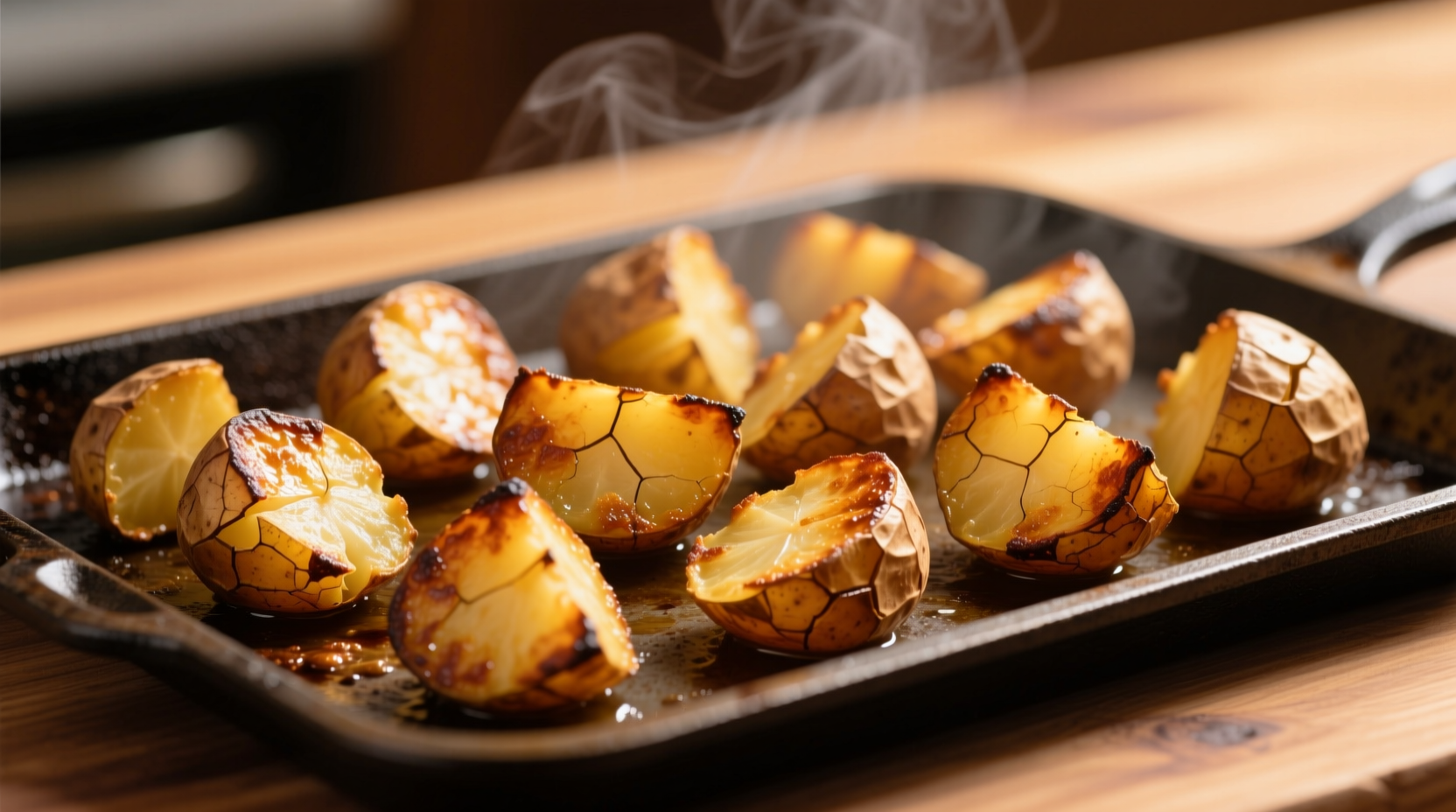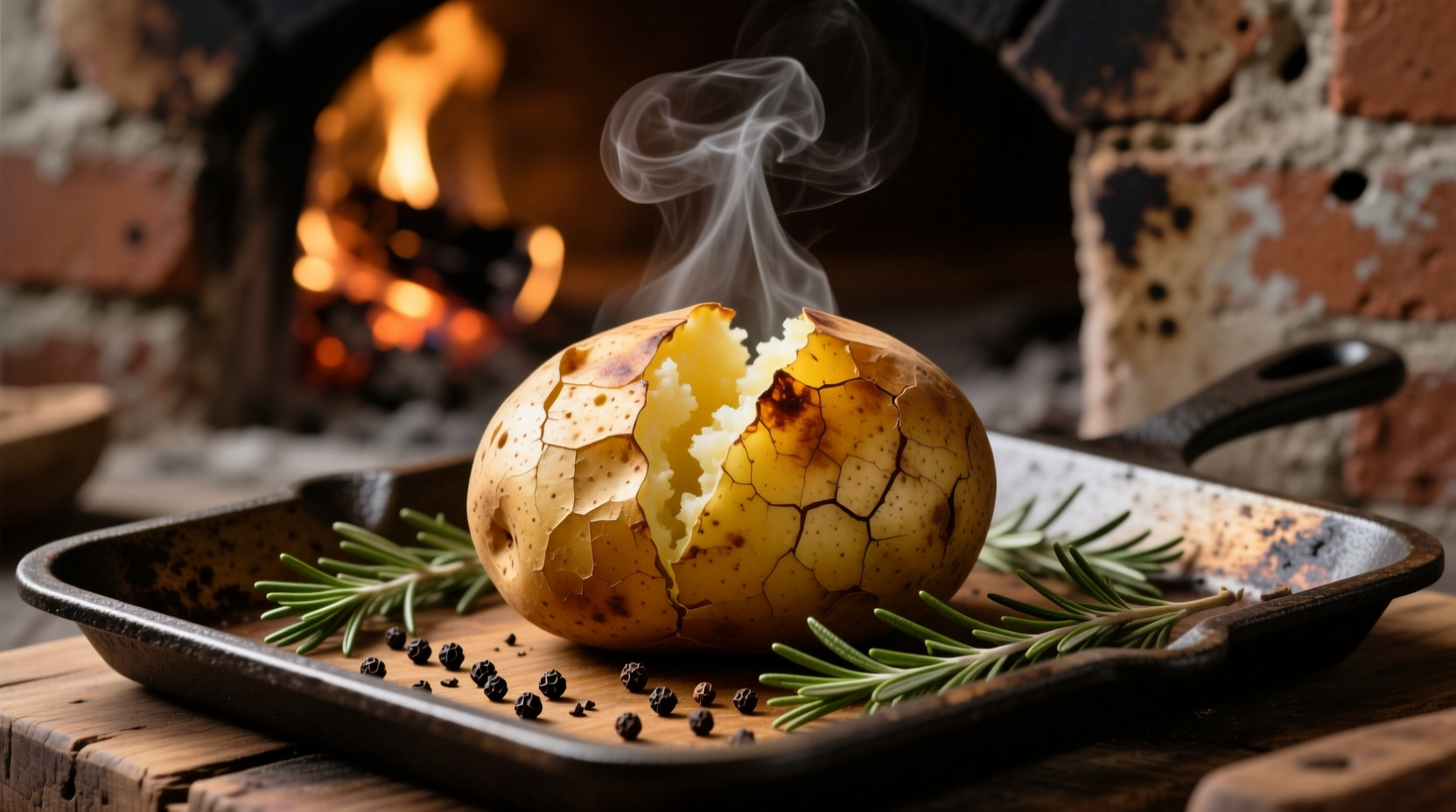Nothing beats the satisfying crunch of perfectly roasted potatoes straight from the oven. Whether you're preparing a weeknight dinner or holiday feast, mastering oven-baked potatoes transforms this humble vegetable into a culinary star. This guide delivers professional techniques tested in both restaurant kitchens and home ovens, ensuring consistent results every time.
Why Oven-Baked Potatoes Outperform Other Methods
While microwaves offer speed and air fryers provide crispiness, conventional ovens deliver unmatched texture control. The even, dry heat creates a delicate balance between caramelized exteriors and steamed interiors that other methods struggle to replicate. Food science confirms that oven temperatures between 375-425°F (190-220°C) optimize the Maillard reaction for maximum flavor development without burning.
Potato Selection: Matching Varieties to Cooking Goals
Not all potatoes behave the same in the oven. Starch content determines whether you'll achieve fluffy baked potatoes or crispy roasted wedges. Understanding these differences prevents disappointing results:
| Potato Type | Starch Level | Best Oven Use | Recommended Cut | Cooking Time |
|---|---|---|---|---|
| Russet | High | Baked whole potatoes | Whole or halves | 55-75 minutes |
| Yukon Gold | Medium | Roasted chunks | 1½-inch cubes | 40-50 minutes |
| Red Bliss | Low | Roasted with skins | Wedges | 35-45 minutes |
| Sweet Potato | Medium | Baked or roasted | Wedges or cubes | 45-60 minutes |
Source: USDA National Nutrient Database for Standard Reference
Preparation Protocol: The 3 Critical Steps Most Home Cooks Skip
Professional kitchens follow a precise preparation sequence that home cooks often overlook. These steps make the difference between soggy and spectacular:
- Dry thoroughly - After washing, spread potatoes on clean towels for 15 minutes. Surface moisture prevents browning.
- Season before oiling - Salt penetrates better when applied directly to dry potato surfaces before adding oil.
- Use room temperature oil - Cold oil congeals on potato surfaces. Warm avocado or canola oil coats more evenly.
Oven Setup: Temperature and Placement Science
Your oven's behavior significantly impacts results. Research from the Culinary Institute of America shows these critical factors:
- Always preheat for 20 minutes minimum - ovens display target temperature before actual heat distribution stabilizes
- Use the middle rack position for even heat circulation
- Place potatoes on preheated baking sheets - cold pans absorb initial heat energy
- Maintain 1-inch spacing between pieces to allow steam escape

Cooking Timeline: When to Check and Flip
Timing varies by potato type and size, but this universal sequence works for most varieties:
- 0-20 minutes: Initial crisping phase - do not disturb potatoes
- 20-35 minutes: First flip - use thin metal spatula for clean release
- 35-50 minutes: Browning development - watch for golden edges
- 50+ minutes: Final texture check - insert fork to test tenderness
Food safety experts at the FDA confirm potatoes are safe to eat when internal temperature reaches 205°F (96°C), but optimal texture occurs between 200-210°F (93-99°C).
Context Boundaries: When Oven Method Isn't Ideal
While versatile, oven cooking has limitations. Understanding these boundaries prevents frustration:
- Avoid for small batches - ovens waste energy heating empty space when cooking fewer than 4 potatoes
- Not ideal for thin slices - dehydrate too quickly below 1/4-inch thickness
- Requires planning - minimum 40-minute cooking time makes this poor for last-minute meals
- Humidity sensitivity - high ambient humidity prevents proper crisping
Pro Chef Troubleshooting Guide
When problems arise, these solutions restore your potato perfection:
- Soggy bottoms: Place potatoes directly on oven rack for final 10 minutes
- Burnt edges: Reduce temperature by 25°F (15°C) and cover with foil
- Uneven cooking: Rotate baking sheet 180 degrees halfway through
- Dry interiors: Toss potatoes in 1 tsp vinegar before roasting to retain moisture
Serving and Storage Best Practices
Maximize your results with these professional finishing techniques:
- Rest potatoes 5-7 minutes after cooking to allow steam to escape
- Finish with flaky sea salt and fresh herbs immediately before serving
- Store leftovers in airtight containers with paper towel to absorb moisture
- Reheat in 400°F (200°C) oven for 8-10 minutes - never microwave
Advanced Flavor Variations
Elevate your potatoes with these chef-developed combinations:
- Mediterranean: Rosemary, garlic, lemon zest, and olive oil
- Smoky Paprika: Smoked paprika, cumin, and a touch of maple syrup
- Herbes de Provence: Thyme, oregano, marjoram, and lavender
- Umami Boost: Mushroom powder, nutritional yeast, and toasted sesame oil











 浙公网安备
33010002000092号
浙公网安备
33010002000092号 浙B2-20120091-4
浙B2-20120091-4